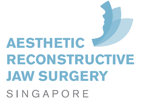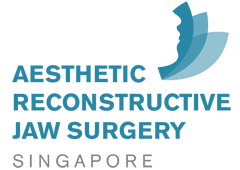Share this
Why cosmetic jaw surgery?
on July 1, 2015

Surgery is usually done for one of two reasons. The first function of surgery is ablative, ie to remove a diseased part of the body. This diseased part, if left alone, threatens the normal functions of other parts of the body both in its immediate vicinity as well as distant part by spreading through the circulatory system. This diseased part may be an abnormal growth such as a tumour or an infection. The second function of surgery is reconstructive, i.e. surgery to repair defects in the body. This may be due to developmental deficiencies, such as cleft lip and palate, or trauma such as road traffic accident, or disease, such as after cancer resection.
Cosmetic surgery, on the other hand, is surgery to enhance physical appearance. There is usually no functional or structural deficit in the body part. There is a perceived aesthetic deficit by the patient. This is where it gets tricky, for beauty lies in the eye of the beholder.
Over the last twenty years of practising orthognathic surgery, I have come across a rather wide spectrum of patients. In some cases, there is a functional deficit where the teeth do not bite together properly and chewing becomes a challenge. In these cases, there is a functional deficit and hence the primary reason for surgery is corrective in nature. There will also be an aesthetic improvement, but that is a happy by-product of the surgery. However, there are many others where the functional deficit is minimal or non-existent, but yet desire surgery. For this group, the prime motivation is to improve aesthetic outcome. It is most important to establish right from the start, whether the patient is internally motivated to seek surgery, or is it due to influence from external parties, such as family and friends.
Many years ago, a man brought his wife to consult me on cosmetic jaw surgery. He brought along photos of movie stars that he liked and started telling me that he would like his wife jawline to be like this actress, her chin to look like that actress and so on. Seeing that his wife, the supposed patient, is rather indifferent, I asked her what she wanted. She said that she did not care but was willing to just let her husband dictate the surgery. This is a classic example of a patient that should not have surgery and I told the husband that. He was not too happy about that and left.
More commonly, however, is a scenario whereby a young patient brings her parents along for a consultation. The young patient has done her homework, researching the internet, etc to find out what can be done and she is clear about what she wants. Parents, however, are usually more concern about the dangers of surgery and less about whether their child is pretty or not, afterall, in the eyes of parents, their child is always beautiful. As many patients seeking cosmetic jaw surgery are young, parental consent is usually needed and that sometimes complicate matters. I once had a young patient who needed double jaw surgery to achieve the aesthetic results that she desires, The mother, was concerned about the risk of surgery but did not want to disappoint her child. She said that she will consent to surgery if it is a single jaw surgery, as she thinks that a single jaw surgery is safer. I told her that it is better not to have surgery at all than to have incorrect surgery. This is because doing a single jaw surgery when a double jaw surgery is needed is not improving the looks halfway. Rather, it is trading the initial deformity with another kind of deformity.
People who are not unhappy with the way they look should not consider cosmetic surgery because of external influence. At the same time, we should not belittle the needs of those who feel the need to have a bit of surgical enhancement. It is a well established fact that a physical attractiveness gives one an advantage, all factors being equal. Studies have shown that attractive people receive more favourable treatment in hiring and promotion, are rated as smarter and more effective communicators. Studies found that even infants prefer to look at attractive faces!
A person's self-perceived physical attractiveness has a bearing on his psychology and by extension, his personality. I have a patient who was in her early thirties when she saw me for cosmetic jaw surgery. As her needs were mainly cosmetic, we did a few rounds of consultations to find out what she really wanted to achieve through surgery. During these pre-surgical discussion visits, she often came late, was grumpy, and not very forthcoming in answering questions. However, after the surgery, when all the swelling has subsided and she has recovered from the operation, there was a noticeable change in her personality. She became more confident and extroverted, greeting everyone when she stepped into the clinic, dressing more trendily, etc. While not all patients exhibit such obvious changes in personality, there is usually more self-confidence and less self-consciousness when the patient's self-perceived deformity is corrected.
Ultimately, each person's reason for seeking cosmetic jaw surgery is different. Most importantly, the patient must be internally motivated to undergo surgery. As with all surgeries, cosmetic jaw surgery has its risks and the patient must balance the benefits of the surgery against these risks.
Share this
- Jaw Surgery (93)
- Dental Implants Singapore (90)
- Orthognathic Surgery (48)
- Replacing Missing Teeth (26)
- Missing Teeth Options (23)
- Underbite (23)
- Bone Grafting (21)
- Costs (18)
- Facial Aesthetics (18)
- Aesthetics (17)
- dental implants (16)
- corrective jaw surgery (15)
- BOTOX (11)
- Dermal Fillers (11)
- Wisdom teeth (10)
- Fixed Implant Dentures (8)
- Loose Dentures Singapore (6)
- Medisave (6)
- sleep apnea (6)
- Braces (5)
- Dental Pain (5)
- Dentures in Singapore (5)
- Loose Teeth (5)
- Tooth Extraction (5)
- jaw deformities (5)
- bimax (4)
- bone graft (4)
- maxillomandibular advancement (4)
- all-on-4 (3)
- bimaxillary protrusion (3)
- chin implant (3)
- facial asymmetry (3)
- full mouth dental implants (3)
- genioplasty (3)
- immediate implant (3)
- removal of an integrated dental implant (3)
- third molars (3)
- wisdom tooth surgery (3)
- My Dentures Don't Fit (2)
- VME (2)
- bone graft healing (2)
- distraction osteogenesis (2)
- medical tourism (2)
- obstructive sleep apnea (2)
- orthodontics (2)
- plastic surgery (2)
- CT guided dental implants (1)
- Double jaw surgery (1)
- Invisalign (1)
- Periodontal Disease (1)
- Permanent Dentures Singapore (1)
- before and after photos (1)
- facial trauma (1)
- fractured dental implant (1)
- oral appliance therapy (1)
- root canal treatment (1)
- veneers (1)
- vertical maxillary excess (1)
- September 2019 (2)
- July 2019 (2)
- May 2019 (2)
- August 2018 (1)
- October 2017 (1)
- September 2017 (2)
- August 2017 (1)
- June 2017 (2)
- May 2017 (4)
- April 2017 (1)
- March 2017 (1)
- February 2017 (3)
- January 2017 (3)
- December 2016 (1)
- November 2016 (2)
- October 2016 (4)
- September 2016 (9)
- August 2016 (5)
- July 2016 (11)
- June 2016 (14)
- May 2016 (6)
- April 2016 (2)
- March 2016 (1)
- January 2016 (7)
- December 2015 (10)
- November 2015 (4)
- October 2015 (9)
- September 2015 (7)
- August 2015 (1)
- July 2015 (6)
- June 2015 (3)
- May 2015 (7)
- April 2015 (5)
- March 2015 (8)
- January 2015 (5)
- December 2014 (7)
- November 2014 (7)
- October 2014 (6)
- September 2014 (8)
- August 2014 (5)
- July 2014 (7)
- June 2014 (8)
- May 2014 (9)
- April 2014 (10)
- March 2014 (6)
- February 2014 (8)
- January 2014 (3)
Subscribe by email
Email subscription




No Comments Yet
Let us know what you think